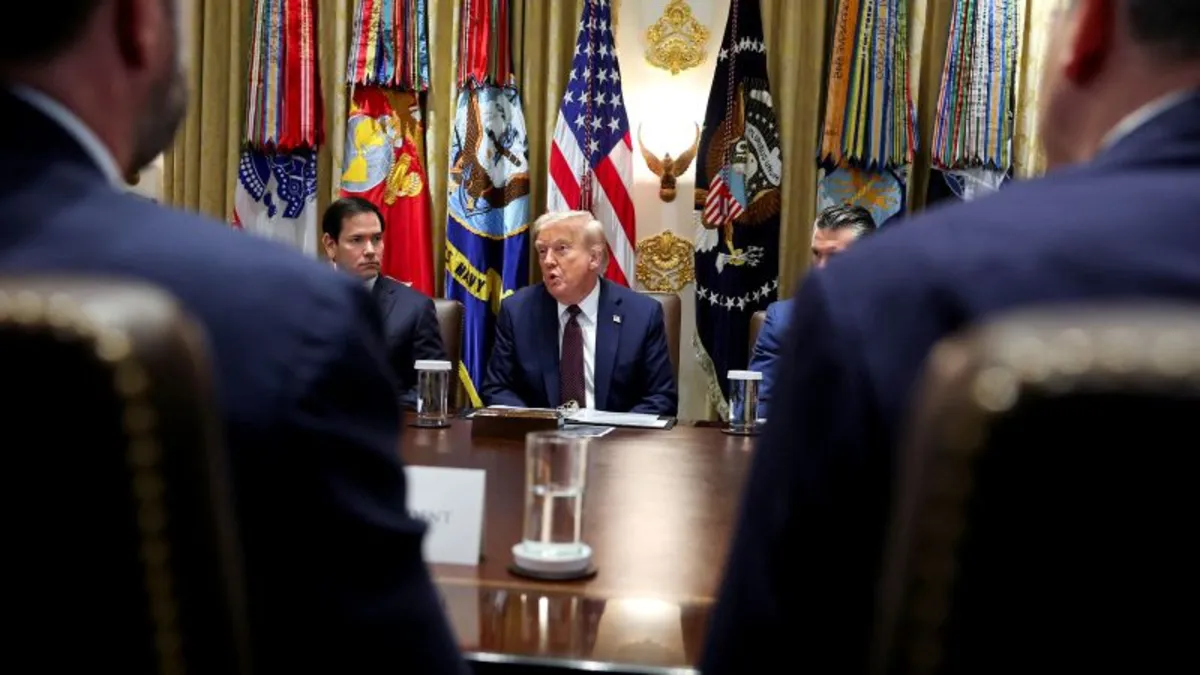
In a bold and controversial statement, President Donald Trump announced that his administration will actively pursue the death penalty in all murder cases within Washington, DC. During a recent Cabinet meeting, Trump emphasized the administration’s commitment to seeking capital punishment for anyone convicted of murder in the capital, stating, “If somebody kills somebody in the capital, Washington, DC, we’re going to be seeking the death penalty.” This declaration has raised questions about the practical implications of enforcing such a policy, particularly given the city's unique legal landscape.
President Trump described the death penalty as a “very strong preventative” measure against violent crime. He expressed that individual states should make their own decisions regarding capital punishment, but stressed that prosecutors in Washington, DC, would be obligated to seek the death penalty for murder cases. “We have no choice,” he asserted, indicating a firm stance on the issue amidst a backdrop of ongoing debates about the effectiveness of capital punishment as a deterrent to crime.
Traditionally, the DC Superior Court oversees the majority of murder cases in the district. However, Washington’s city code currently does not authorize capital punishment, potentially complicating the administration's efforts. The US Attorney’s Office in DC, which uniquely prosecutes both local and federal crimes, could theoretically bring federal charges in cases eligible for the death penalty. US Attorney Jeanine Pirro affirmed this possibility at a press conference, stating, “We will use all legal sanctions and sentences called for by law.”
However, achieving a death sentence in Washington, DC, could prove to be a daunting task. Legal experts have indicated that persuading jurors to impose capital punishment has been historically challenging. Jon Jeffress, a former federal public defender turned private defense attorney, voiced concerns, saying, “It’s going to be difficult to find 12 people in DC who are going to do that.” The district has not conducted a death penalty trial since 2003, highlighting the significant obstacles prosecutors may face.
In the last notable death penalty trial in Washington, DC, jurors were unable to reach a unanimous decision on whether to impose death sentences for two convicted murderers, Rodney L. Moore and Kevin L. Gray. This history raises important questions regarding the willingness of jurors to consider capital punishment. When questioned about past juror reluctance, Pirro maintained that her office would adhere to legal processes, stating, “We’re going to follow the law, the deliberative process, present the evidence … whether DC is inclined to do it or not, it’s not a political issue.”
In recent months, the Department of Justice has indicated its intent to pursue the death penalty in at least three cases within the federal court in DC. One of these cases involves Elias Rodriguez, who is accused of shooting two staff members from the Israeli embassy. The DOJ is also considering seeking capital punishment for two Mexican nationals charged in a gang-related case and for two individuals indicted in a 2023 carjacking incident.
This renewed focus on the death penalty comes at a time when the federal death row has dwindled to just three inmates, following President Joe Biden commuting the sentences of around three dozen federal inmates previously sentenced to death. Since the beginning of his presidency, Trump has committed to restoring the use of capital punishment in the United States, directing the attorney general to pursue the death penalty wherever feasible.
As this situation continues to evolve, it remains to be seen how the Trump administration's pursuit of the death penalty in Washington, DC, will unfold amidst the city's complex legal framework and the historical challenges associated with securing death sentences.